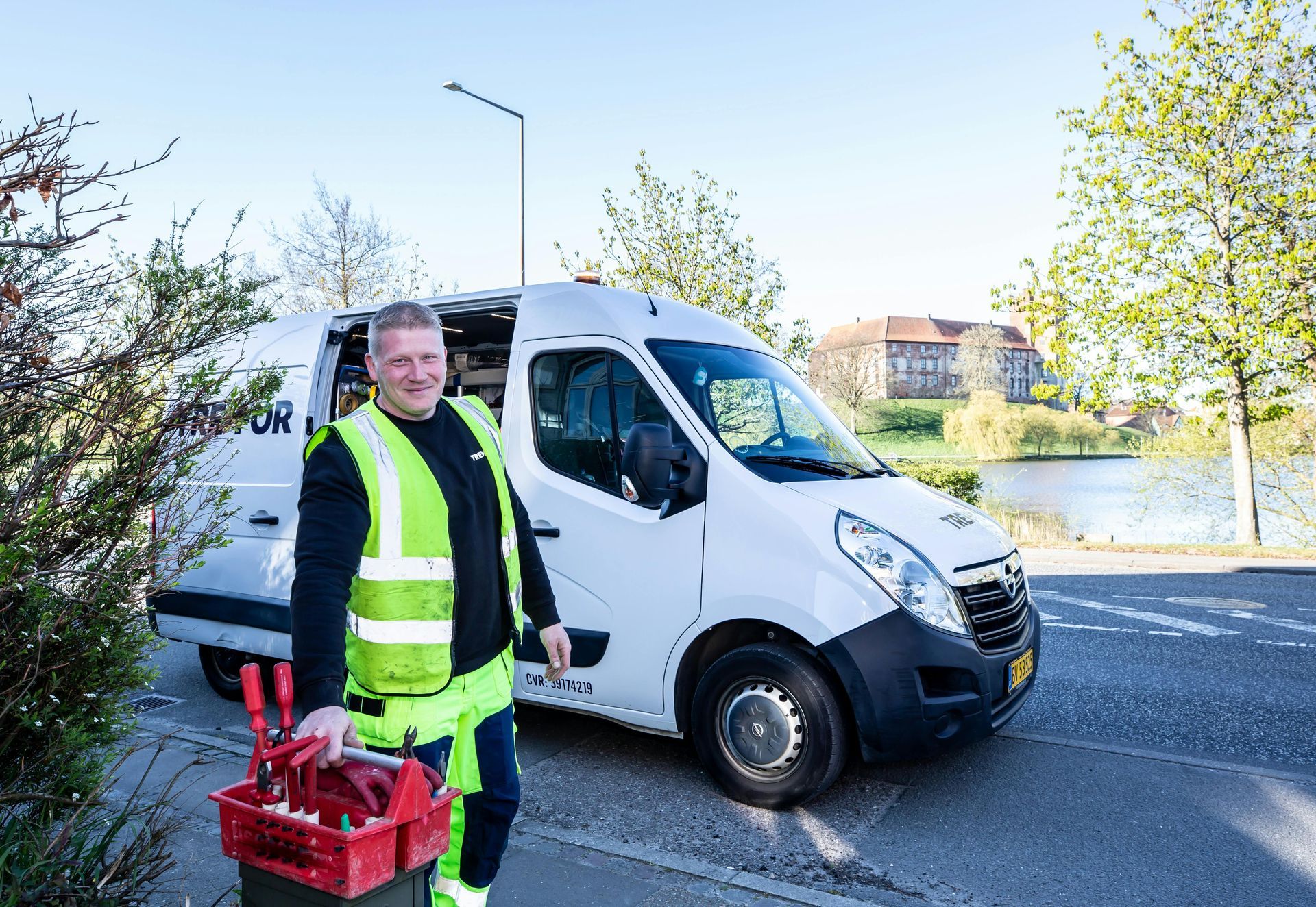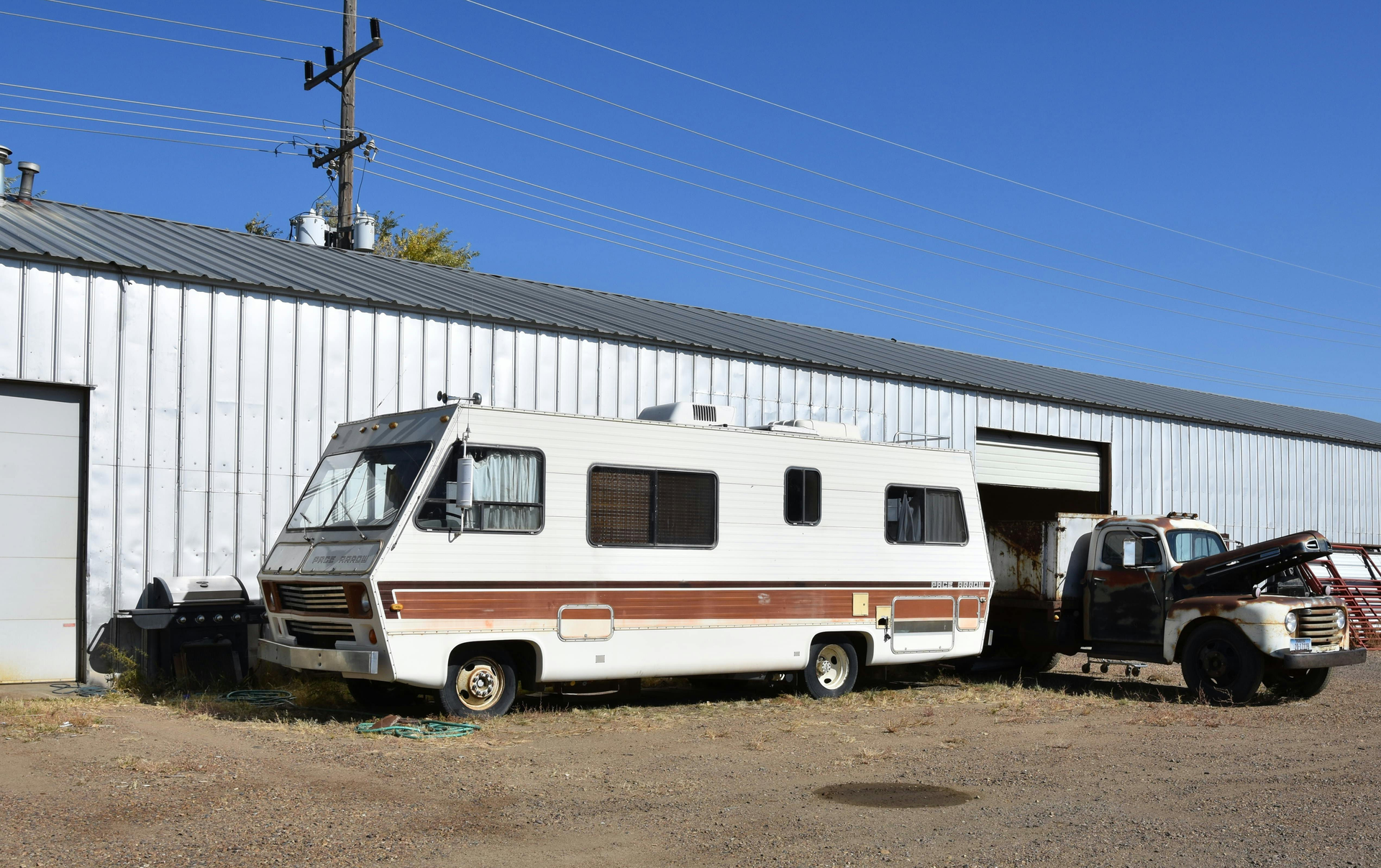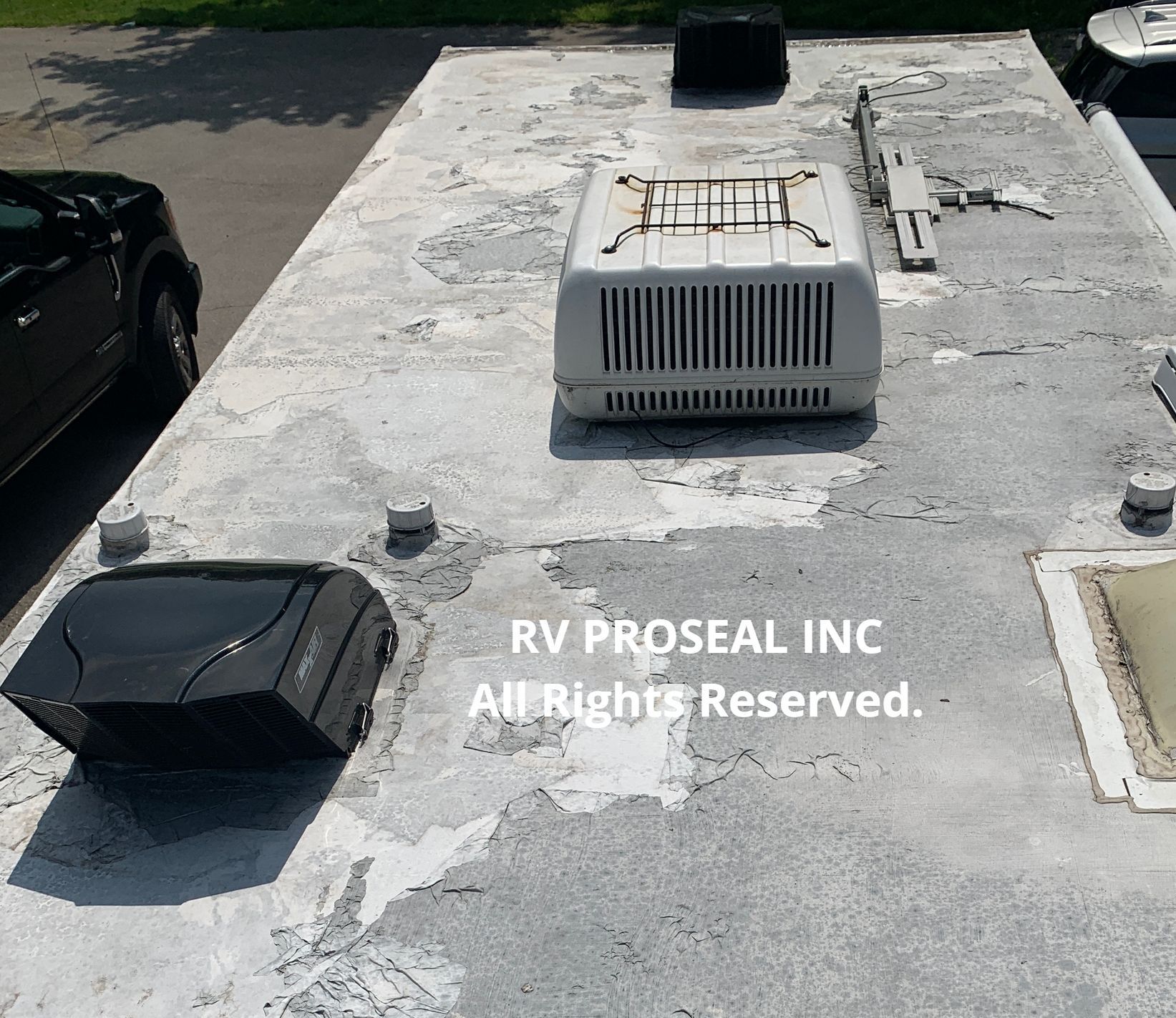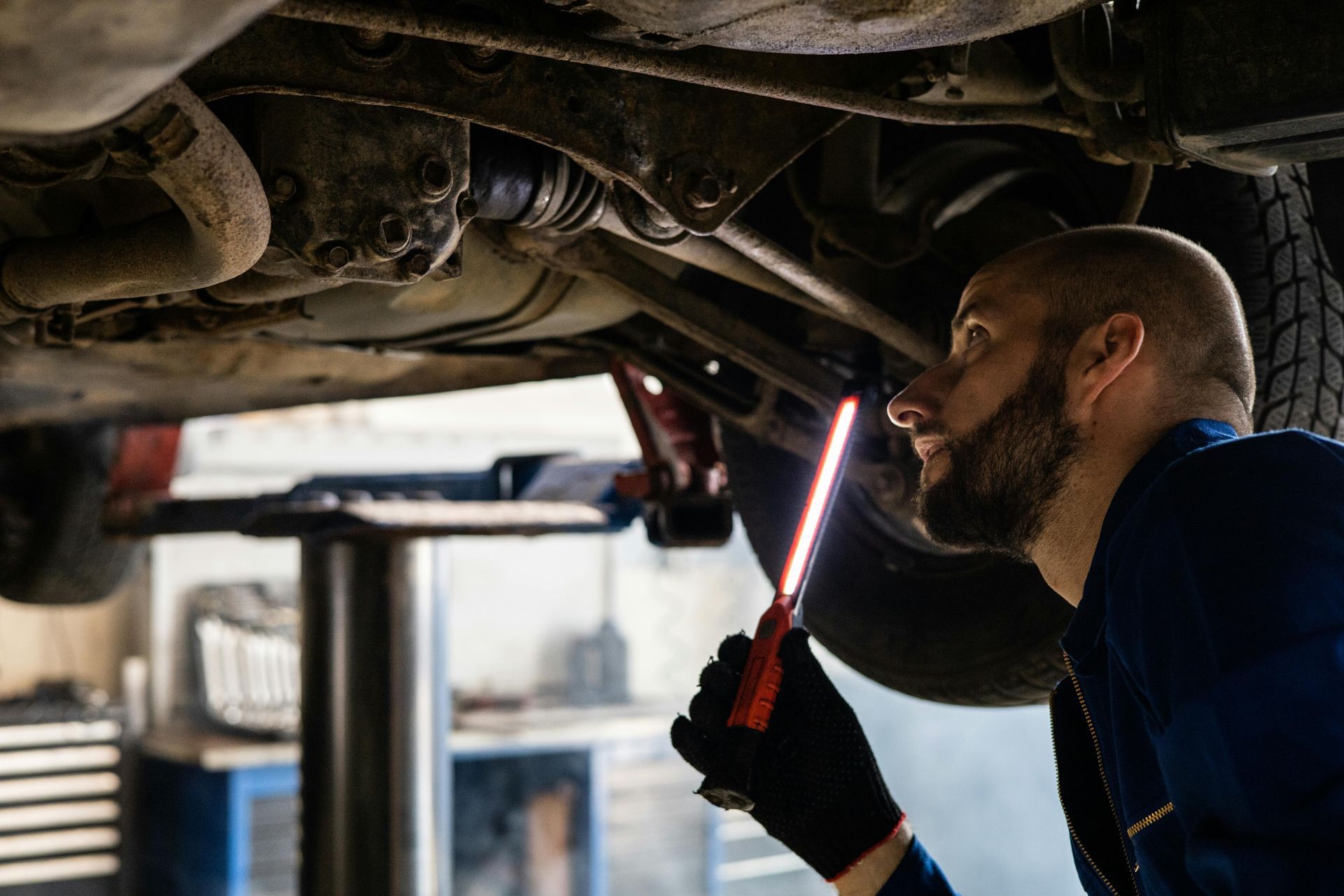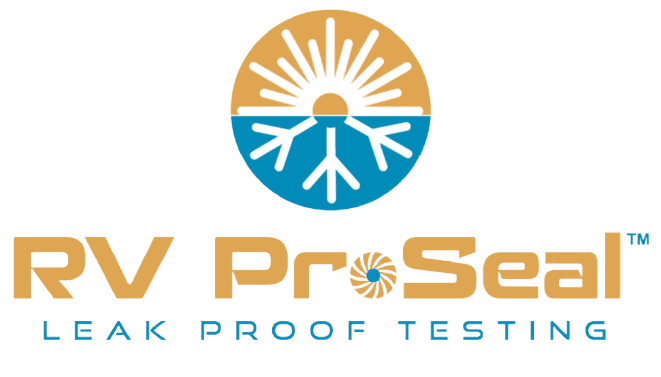The Perfect Waterproof RV Roof
RV Roof Sealing Services or RV Resealing Services - Tips From the Experts at RV ProSeal in Oakville
Does the Perfect Waterproof RV Roof Exist?
RV owners are bombarded with “foolproof” products like “spray this, tape that or paint on coatings.” Advertised depictions persuade some RV owners of what roof resealing/waterproofing looks like using simple before and after photos of dirty vs clean white roofs. DON’T BE FOOLED!
The perfect waterproof roof would have no seams or cut holes for rooftop items like vents, skylights, ACs etc., which is not the case. These holes and seams are where waterproofing is required, not the whole membrane. If your membrane is close to 15 years old or more the coating may not be a good solution. Get a 3-party, RV inspection for the right advise first.
Maintain the membranes by cleaning them with a mild automotive soap and soft brush & condition them in the spring and fall. Sheltered winter storage is the best choice for the longevity of your RV and roof.
Now the following might be surprising...
Most RV owners would believe that the only the self-levelling lap sealant, the wide, thick, ugly-looking caulking around the roof vents and other rooftop items is a one and done waterproofing solution.
RV manufacturers and your professional RV repair should install or maintain a primary seal under the component flanges, roof terminations and seam trims. The primary sealant’s job is to also help waterproof the opening or termination seams.
If you have a roof leak in these areas, it’s a failure of both the primary seal underneath the flange or trim, and the self-levelling lap sealant. However due to cost, most people opt to only repair the lap sealants. The lap sealant indeed provides additional waterproofing up to 7 mm thick that bonds itself to the membrane while covering screw heads and flanges. The thick setup also acts as flashing with the height to redirect and shed water away from the roof penetrations while protecting the main waterproofing primary seal.
Coatings on flat roofs are only 0.3mm to 0.7mm in thickness, depending on the product and number of coats. However, coatings on flat roofs do a poor job of diverting rainwater and still can allow ponding. Ponding resistance and duration is very important in four season climates or where there are higher annual precipitation. During our RV inspections, we often see coatings and tapes trap, mask and hide leaks making standard repairs more expensive then necessary.
Are coatings necessary?
It depends. We wanted to hear from the top RV authorities regarding RV roofing. We spoke with some of the leading brands in the RV industry who stated, “The only reasons to coat are aesthetics and renewing the white heat deflection layer for rubber membrane roofs when the black rubber becomes visible. It is not a longer term, waterproofing solution.”
Another top RV coating manufacturer, who advertises 'waterproofing' told us, "The roof top areas requiring waterproofing cannot be done with just the coating alone. Primary and secondary lap sealant waterproofing must be in good shape before painting over top. The next biggest problem we have are installers only applying half the required amount over the roofs and splitting the coating material over two jobs to save costs. The customer won't know until they make a claim and the installer is nowhere to be found."
Suppose the advertisement or hired applicator says their product is for waterproofing. In that case, you should have a lot more questions for them. Such as, "Do you know what type of membrane I have?". If they claim their coating is good for everything... stop and investigate further. For example, do NOT coat an RV TPO membrane roof. "Is the coating non-flammable during application and once cured?" Other things include movement tolerance, peel strength, ponding resistance, number of required coats, and how are penetrations, holes, cracks and splits addressed. Check the product specifications too.
DIY Coatings Sold Online
Some Manufacturers and RV repair shops use other sealant brands that are silicone based depending on the type of roof. Now, keep in mind that nothing adheres to silicone (the same silicone product might). Even removing physical silicone lap sealant leaves a non-stick residue behind.
The usual practice to remove cured silicone residue is using abrasives or petroleum-based solvents. However, they will damage roof membranes.
Paint a coating overtop silicone-based lap sealant or other types of old, improperly prepared zones will result in very early adhesion failure, allowing water to collect between the coating layer and the area where water must be diverted. Our inspections have come across these types of coating failures.
If you do not know the type of existing sealants on the roof, type of roof and the hired coating applicator doesn’t know or care, it can become a nightmare.
To renew proper rooftop waterproofing or fix a leak, get it done right the first time. Once completed, take advantage of professional leak prevention inspections by a creditable RV Leak Inspection Company for continued peace of mind.
To learn more about doing the right thing at the right time with the right products, comment, message or call us at 1-866-478-5325.
RV ProSeal Inc is the first and leading fully insured, licensed and trusted expert for RV moisture inspections, leak prevention, leak detection, and RV waterproofing, serving southwestern Ontario, Canada.
You might also like
